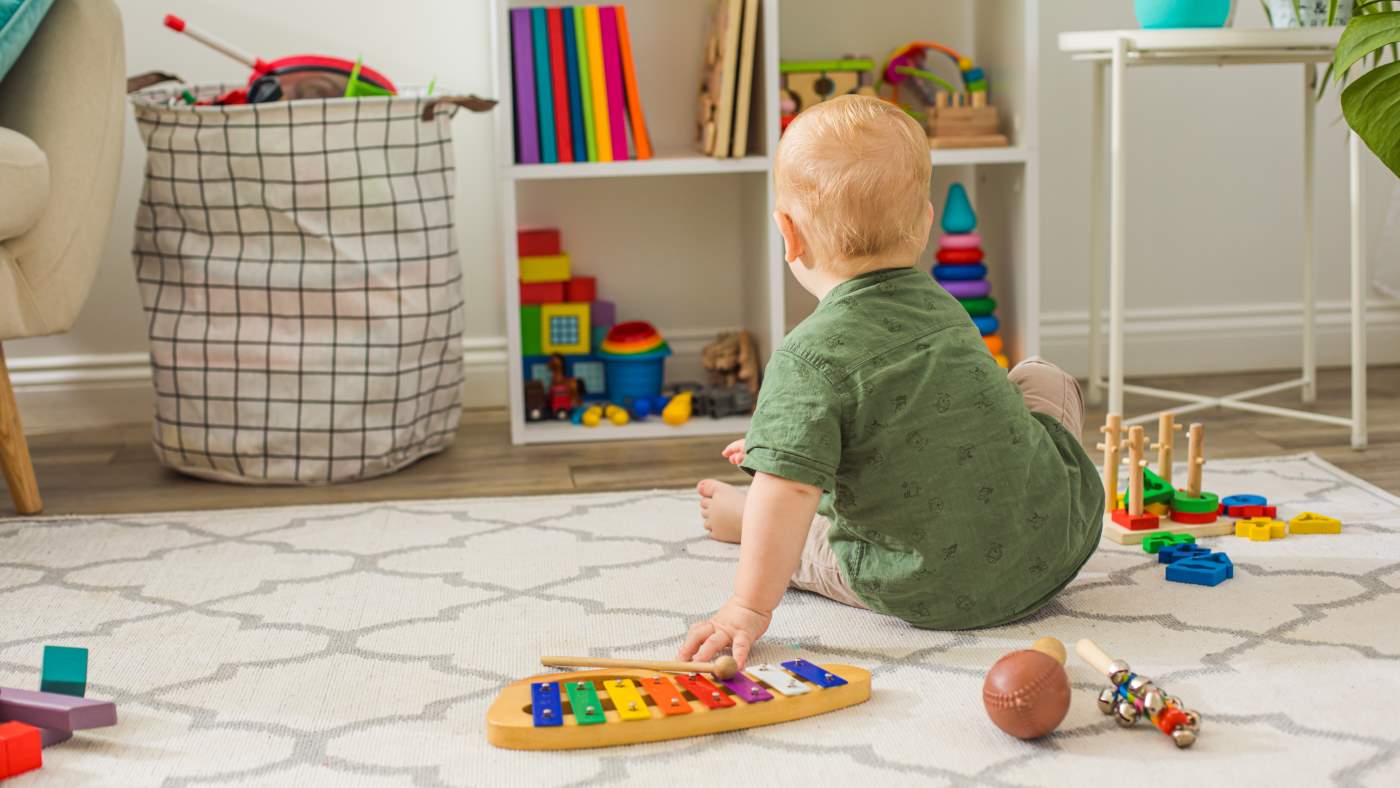Boundaries and choices – some tips to find the balance for you and your toddler

Your toddler will be much more aware of their own wants and needs now, including their desire for autonomy. It's something we all have: to feel we can make decisions about the things that happen to us. Fulfilling their need to be in control is important, but may also cause frustration for you both. Balancing choices and boundaries can help
Give choices when you can
When possible, let your toddler make a choice. This might be between two snacks, pyjamas, toys or bedtime stories.
Don't give too many options when your toddler is first making choices, as this can be overwhelming for them. They need to imagine themselves with each of the possibilities to be able to decide which they’d like – and this can be tricky, so two things to choose from might be enough.
This will help your toddler to practise making a choice, but also build their confidence that you will let them choose when you can, which might help them when they’re not in a position to choose.
Be honest about choices
If your toddler can’t have a choice, be clear, calm and truthful about this and be ready to support them if they feel sad, disappointed or angry.
When you support them with their sadness or anger, you’re helping them to learn the skills they need to manage these emotions. We all experience disappointment at times and while we aren’t suggesting you’d deliberately upset your toddler, helping them with these feelings when they have them will build important skills for the future.
This might be saying something like, “I know you’re sad – you didn’t want to go to bed yet but look at my watch: it’s time for bed.”
Your toddler might still be upset, but by staying calm and clear you can help them see it’s ok to feel upset or disappointed.
Having a bit of a script in mind so you say the same or similar thing each time can help you to stay calm and your toddler to predict what will happen – it might still take lots of repetition for something like bedtime stalling to lessen so be ready to do this several times.
Sometimes it’s hard to keep calm when your toddler isn’t. If you notice you’re starting to feel frustrated, take a moment and some deep breaths, or ask another adult to take over for a bit.
Be consistent and predictable
Your toddler might find it difficult when they can’t make a choice, perhaps when they must hold your hand to be safe near a road, or they need to go to bed.
Being consistent about boundaries can help them to feel secure, so even if they’re upset when they can’t have a choice, remember that fair boundaries help your toddler feel safe.
Keeping routines predictable and consistent can help your toddler – some children like having pictures for routines so they can see what will happen next.
You could have a few photos or even draw a few simple pictures of what happens at bedtime – then say, “Look, we’re tidying now, then it’s time to brush teeth, then have a story – I wonder which story you’ll choose?” If you use pictures, show your toddler each picture as you chat through the routine; they might even like having a box or bag that they put the picture in as they finish each step.
If there are opportunities for choices as part of something that must happen, then include these – it could be as simple as: would you like the blue pyjamas or the red ones?
Be ready to co-regulate – choosing is difficult at first
Co-regulation is supporting another person with their emotions. It’s something we all need at times, but toddlers and young children might need more often as they have less experience of responding to their feelings.
Sometimes your toddler might make a choice, then immediately change their mind – making choices takes some practice.
Be ready to support your toddler if they decided they wanted one thing but are then upset and think they want another.
Giving them lots of opportunities to make a choice will help them with this, as they will learn to think about what will happen as a result of their decision.